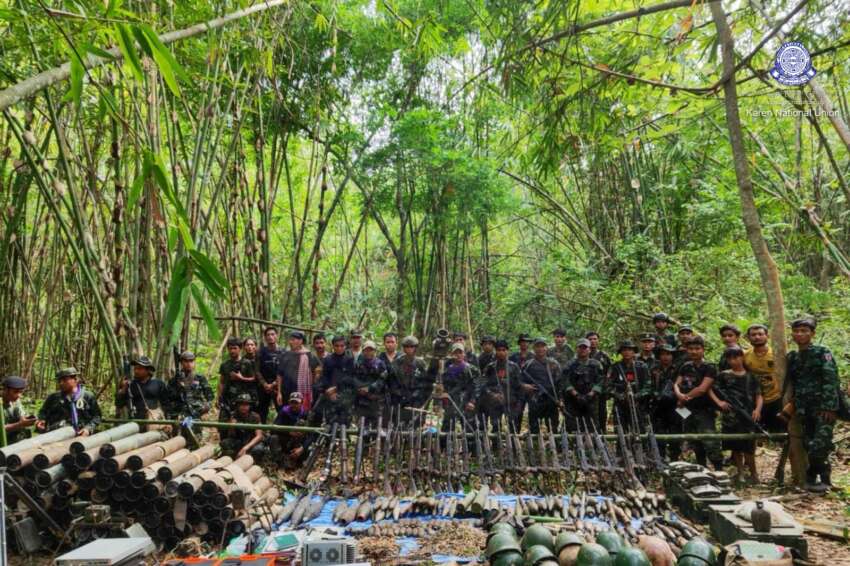
The Karen National Union (KNU) issued a significant statement on May 9th expressing grave concerns about the military council’s plans to construct a nuclear power plant using Russian technology. The statement emphasized that this development poses serious risks to the safety, security, and well-being of both Myanmar and Thai citizens. This announcement came following the KNLA’s recapture of the Theechaung area in Dawei Township, Tanintharyi Region.
The KNU released a special notification to Thai citizens living along the Thai-Myanmar border after regaining control of the strategic position. The statement recalled how the Myanmar military’s forceful occupation of KNU’s Myeik-Dawei District territory in 1997 led to military conflicts and forced displacement of local residents. The KNU’s Military Brigade 4 believes that regaining control of the Theechaung military base in the Myeik-Dawei region is crucial for ensuring the security of people living in both Myanmar and Thailand.
According to the KNU’s statement, the military council has identified two potential locations for the nuclear power plant construction: one in central Bago Region and another within the Dawei Special Economic Zone in Tanintharyi Region near the Thai border. The organization emphasized that these plans represent a significant threat to regional stability and safety. The KNU maintains that military action against the council is necessary to secure the people’s right to self-determination and protect them from the military’s ongoing violence.
The KNU highlighted its long-standing harmonious relationship with the Thai people, stretching from the past to the present, and expressed its commitment to maintaining respectful and friendly relations as good neighbors in the future. The statement emphasized the organization’s dedication to maintaining lasting peace and cooperative relations with Thailand, while seeking understanding from the Thai people regarding the current situation. This demonstrates KNU’s commitment to regional stability while opposing the military council’s potentially dangerous nuclear development plans that could affect both Myanmar and Thai citizens.



